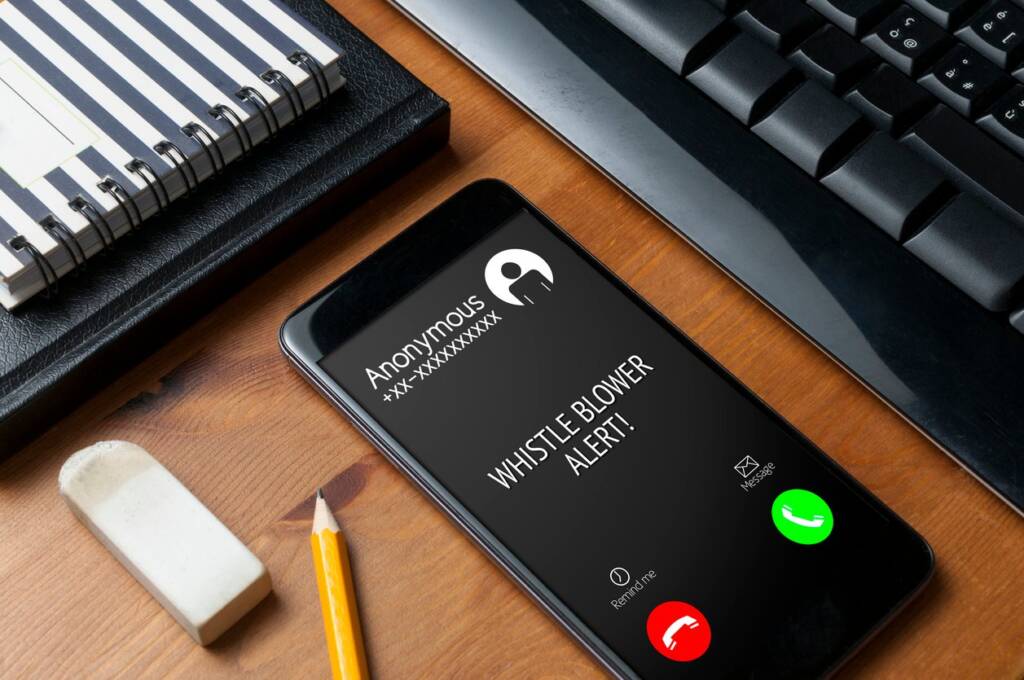5 Areas of Focus For Enhancing Your Company’s Whistleblower Hotline Program
Establishing a whistleblower hotline is an essential part of a company’s structure, however, to ensure both you and your employees get the most benefit from it, your hotline needs to be given the right amount of resources to help it succeed.
From the outset, defining the expectations for what should be reported via the hotline can help ensure the line remains free from minor complaints, such as parking disputes. It’s important that employees understand the kinds of issues that should be reported through the hotline.
In addition, investing in continuous education and training for employees on the importance of ethical behavior, how to recognize misconduct, and the proper ways to report it will help keep offenses in-house, minimizing their expansion into more public forums. All of this combined helps ensure the team responsible for managing the hotline can concentrate on addressing matters that may have a substantial and costly effect on the organization.
1. Getting the Right Amount of Calls
Both quality and quantity are important for your hotline to be effective. While the quality of the calls is valuable for supporting a healthy culture, quantity is equally important. If call volume is too low or too high, it could indicate a lack of awareness or understanding across your employee base.
When calls are too few, it could mean your employees are not aware of the hotline. Maybe it’s not being promoted as effectively as it could be. Or maybe employees lack confidence in the anonymity of the hotline, or in your company’s ability to take action. Did you know that 26.5% of employees who have witnessed workplace wrongdoing haven’t reported it due to fear of retaliation? Make sure your employees are well aware of its existence and provide them with the proper materials and training so they know they can access the line any time—day or night—without fear.
2. ‘A’ For Anonymous
When you have an anonymous whistleblower hotline, employees can rest assured their identity will be protected when they make a report. For that reason, many companies have found that implementing a third-party whistleblower hotline service has been. These third-party services give employees more confidence that their reports are going to be taken seriously and will not be subject to prejudice or judgement.
Additionally, it is important that a whistleblower feels safe and won’t be a victim of retaliation. Implementing a zero-tolerance policy towards retaliation will go a long way to ensuring that whistleblowers feel supported when raising concerns.
Over the past five years, the percentage of reports made by repeat reporters who were willing to identify themselves has more than doubled. This statistic is a powerful indication that there is more trust built in whistleblower hotlines than ever before.
3. TIME IS OF THE ESSENCE
3. Time is of The Essence
While whistleblowers may have increased over the years, company response times seem to be increasing as well. In fact, it is taking even longer to address a reported incident than it used to.
Where the average time to close a case was once thirty days, it now takes an average of 36 days. This poses a real danger to the success of your hotline. Once employees begin to believe that the company isn’t addressing their concerns, frustration can set in, and either the employee will decide to address the matter in another way or leave altogether.
Understandably, some issues could take longer to investigate based on the allegation, so best practice is to communicate with the whistleblower throughout the process. Let them know you’ve received the case and give them a status update if the case is still open after a certain number of days. Providing simple communications like these will let them know they matter and the company cares.
4
4. Skilled Operators Make a Difference
Another area of concern is how the calls are fielded. The contact person responsible for accepting the calls and getting the details of the complaint also needs to be just right. You want those people who are skilled in asking the right questions. They should also have some background in psychology as well. Since the majority of callers are nervous or even afraid when they make a report, the intake person needs to know how to assure them that they will be safe and get them comfortable enough to reveal what they know.
5. PROOF IS IN THE OUTCOMES
5. Proof is in The Outcomes
It benefits the business and the employees to have a system that effectively analyzes the success of their whistleblower program. This evaluation is essential in helping you identify areas of improvement and growth. Without analysis, it would be difficult to determine exactly where to make the needed adjustments. There are many things to consider when evaluating just how good your company’s whistleblower hotline really is, so don’t forget to benchmark and measure at consistent intervals to ensure long-term success.



